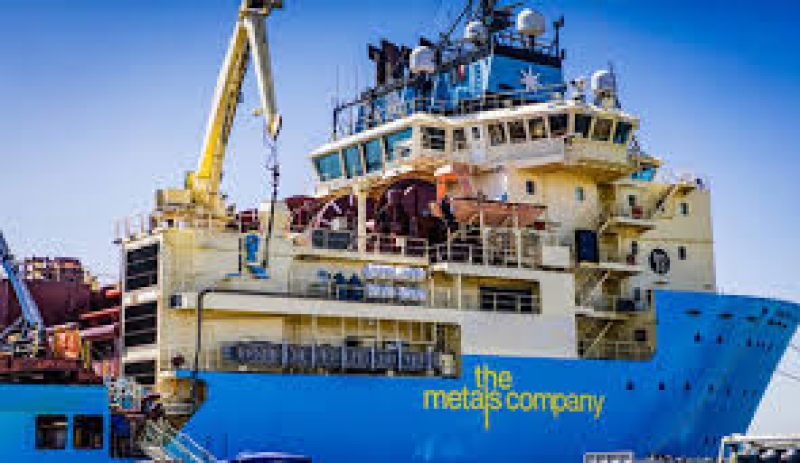- Bangladesh Economy Shows Signs of Recovery Amid Challenges |
- Bangladeshi Women Student July Protest Leaders to be honoured at Women of Courage Award ceremony |
- 'Eid of sadness': Gazans pass with scarce food, razing war |
- 5 Eid congregations planned at Baitul Mukarram Mosque |
- Heat wave may sweep Bangladesh on Eid Day Monday |
Canadian Miner Seeks U.S. Permit Amid Delayed Global Talks

A Canadian mining firm aiming to become the first company to excavate seabeds in international waters announced Thursday that it will seek U.S. authorization, as global negotiations on seabed mining regulations continue to stall.
Gerard Barron, CEO of The Metals Company, explained that the U.S. offers a "stable, transparent, and enforceable regulatory path" in light of the prolonged delays in establishing a global mining code.
"We believe this approach gives the best chance of receiving a commercial permit to begin operations in a timely manner," Barron said in a conference call, referring to the repeated failures of the International Seabed Authority (ISA) to finalize an agreement.
In late 2024, The Metals Company had planned to apply for the world’s first mining permit from the ISA on June 27, 2025, through its subsidiary, Nauru Ocean Resources Inc (Nori). The company seeks to extract polymetallic nodules — mineral deposits containing valuable metals like cobalt, manganese, nickel, and copper — from the Pacific seabed.
Under the UN Convention on the Law of the Sea, the ISA is responsible for regulating the extraction of minerals in areas beyond national marine borders. However, the body has been unable to finalize a mining code despite over a decade of negotiations, with an ongoing session in Kingston, Jamaica, failing to yield any progress.
The delay in establishing a mining code has left any applications, including the one The Metals Company plans to submit, in legal uncertainty. As a result, the company intends to apply for approval from the U.S. National Oceanic and Atmospheric Administration (NOAA) under a 1980 U.S. law governing international seabed exploitation.
Notably, the United States is neither a member of the ISA nor a signatory to the UN Convention on the Law of the Sea.
The Metals Company has stated it will disclose the specific areas it intends to include in its contract at a later time.

